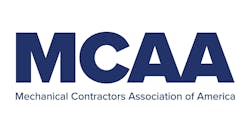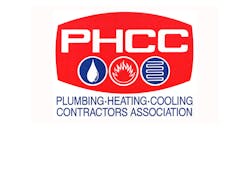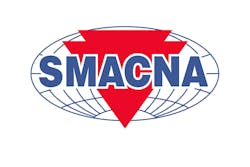Small-business owners have a lot to manage to keep their businesses afloat—advertising, marketing, labor (personnel and payroll), insurance, rent or building upkeep, etc. Home services businesses such as plumbing and heating contracting firms have the additional overhead of trucks, tools, licenses and certifications, and training.
And small businesses are critical to the economy, especially as we climb ourselves out of the COVID-19 pandemic hole of the last 16 months. The Bureau of Labor Statistics Business Employment Dynamics report states that small businesses created 10.5 million net new jobs between 2000 and 2019, accounting for 65.1 percent of net new jobs created since 2000.
The federal coronavirus relief package created the Paycheck Protection Program in March 2020 to provide fully forgivable loans to small-business owners hit hard by the pandemic. As of May 31, 2021 (the end of the program), the Small Business Administration approved nearly $800 billion in PPP loans.
However, small businesses struggled even before the pandemic. About 20 percent of new companies close within a year, notes the Bureau of Labor Statistics. However, only a handful (34 percent) make it to their 10th anniversary.
It can be overwhelming for independent business owners, especially if they have no business training. It’s the reason many trade publications such as CONTRACTOR Magazine are in existence; we’re here to provide information to help you run your business.
The major ones are the Air Conditioning Contractors of America, American Fire Sprinkler Association, Electric and Gas Industries Association, Mechanical Contractors Association of America, National Association of Oil and Energy Service Professionals, National Fire Sprinkler Association, Plumbing-Heating-Cooling Contractors – National Association, Radiant Professionals Alliance, and Sheet Metal and Air Conditioning Contractors National Association.
Best practices groups—such as AirTime Success International, Nexstar, Plumbers’ Success International, Service Roundtable/Service Nation Alliance and the Unified Group—focus on education, training and networking.
And PHCP women have access to organizations focusing on their distinct needs and issues in the industry: Women in HVACR, Women in the Mechanical Industry, Women in Energy.
Education and Training
Topics range from starting a marketing program to pricing models to filling the skilled labor gap. Technicians can beef up their technical knowledge, and apprentices can learn new skills.
As we struggled with the pandemic last year, PHCC, MCAA, ACCA and others developed a series of webinars to assist their members in navigating the coronavirus minefield to continue serving their customers—and keeping their employees safe.
And while many look forward to learning about new products and technologies at industry conventions and trade shows, virtual became the new norm in 2020. Social distancing protocols and other pandemic-related rules made in-person events cost-prohibitive
“All our surveys and our feedback came back strong,” says Colleen Keyworth, who coordinates Women in HVACR’s marketing and event planning. “Many people enjoyed our conference, said it was different than others they had attended in the past. Everybody appreciated the fact that they felt as if they were connecting with people.”
This fall, PHCC Connect will hold an in-person event in Kansas City, Mo., after its first virtual event in 2020, where succession planning, budgets, leadership and any COVID-19-related sessions were immensely popular.
“Since the pandemic, PHCC has introduced many new courses, webinars and resources to make sure our members had the right type of business management training for them and specialized training for their employees,” says PHCC President Hunter Botto. “Looking ahead, we will have a full lineup of more than 20 education sessions at PHCC CONNECT2021 that will focus on topics PHCC members requested. We also will present a preview of an exciting new PHCC Finance Boot Camp for PHC business owners.”
Botto notes that it is very important for PHC contractors to stay informed about the latest trends and developments that affect their businesses. “With the many disruptions that occurred as a result of the pandemic, we’ve all learned that contractors need to adapt quickly to be successful in these changing times,” he says. “By tapping into educational resources that are available, business owners can ensure that they and their employees are up to speed on the latest best practices and technologies to become more agile and resilient in the long term.”
The educational value that associations offer comes from recognized national speakers and those successful in the PHCP industry who find a calling to help raise the professional bar.
With the critical shortage of skilled workers that the PHCP industry continues to face, associations can lend members a helping hand.
The PHCC Educational Foundation’s career training is helping contractors attract and retain the next generation of workers. Its online courses include "Plumbing and HVAC Workforce Readiness," "Fast Track to Service Plumbing" and four-year plumbing and HVAC apprentice courses.
“The flexibility of the foundation’s e-learning courses provides contractors and students with an alternative solution to classroom-based instruction,” says Foundation Chair Kevin Tindall. “In New Jersey, where my business is located, the foundation’s online courses are also helping us to attract new members.”
Advocacy
Another big perk of association membership is advocacy. These organizations monitor what is going on in Washington and state legislatures to ensure that any legislation affecting PHCP professionals benefits those professionals and the industry, not harm them.
As the saying goes, “There is strength in numbers,” and PHCP associations use that member strength to influence lawmakers in backing certain pieces of legislation deemed friendly to the industry. Organizations such as PHCC, MCAA, SMACNA and others have annual sojourns to our nation’s capitol to meet with legislators and discuss key regulatory and legislative issues.
These issues could be unfair competition, apprenticeship programs or a national infrastructure bill.
The infrastructure legislation that Congress is now trying to put together is of immense interest to our industry. Legislative liaisons of national associations are in contact with key lawmakers in both parties to keep PHCP professionals in the loop.
Networking is a big perk, too, but not as distinctive as association membership's education and advocacy benefits.
If you are an independent PHCP business owner, take a leap of faith and join a local or state chapter of a national association listed previously. Even if you don’t believe you need help running your business, everyone needs help these days hiring and retaining skilled workers. You may find members who took a different tack and were successful.
The price of admission is worth it.
Kelly Faloon is a contributing writer to CONTRACTOR Magazine and principal of Faloon Editorial Services. The former editor of Plumbing & Mechanical magazine has more than 20 years of experience in the plumbing and heating industry and B2B publishing. She is a journalism graduate of Michigan State University.
About the Author

Kelly L. Faloon
Freelance Writer/Editor
Kelly L. Faloon is a contributing editor and writer to Contractor, Contracting Business magazine and HPAC Engineering and principal of Faloon Editorial Services. The former editor of Plumbing & Mechanical magazine, Faloon has more than 26 years of experience in the plumbing and heating industry and more than 35 years in B2B publishing. She started a freelance writing and editing business in 2017, where she has a varied clientele.
Faloon spent 3 1/2 years at Supply House Times before joining the Plumbing & Mechanical staff in 2001. Previously, she spent nearly 10 years at CCH/Wolters Kluwer, a publishing firm specializing in business and tax law, where she wore many hats — proofreader, writer/editor for a daily tax publication, and Internal Revenue Code editor.
A native of Michigan’s northern Lower Peninsula, Faloon is a journalism graduate of Michigan State University. You can reach her at [email protected].




